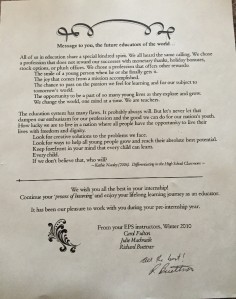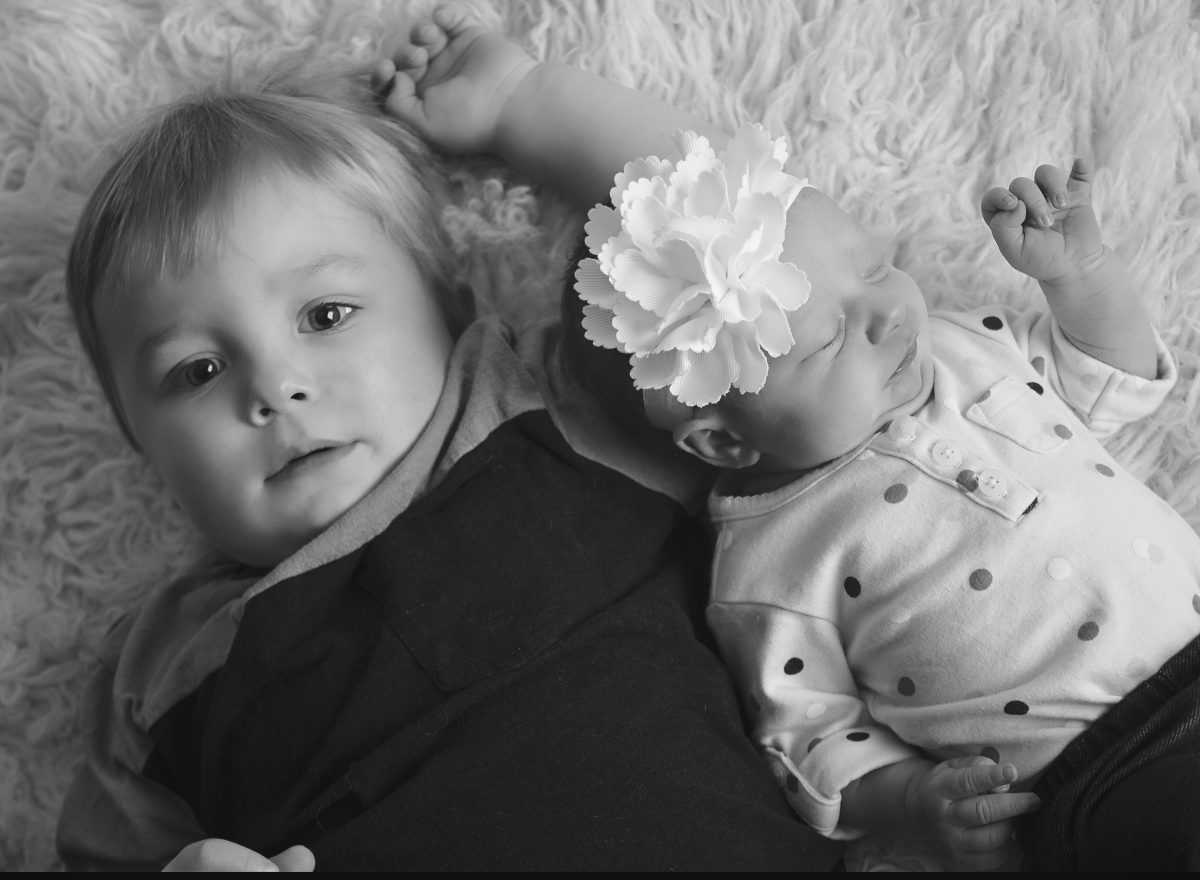Knowledge is said to be shared information, ways of knowing, an accumulation of answers, a sum of one’s experiences, truth and power. Knowledge has many forms of being presented and represented. As a parent, wife and educator, I believe that personal experiences have a direct correlation with knowledge and the way we see and interact in the world. Aristotle is someone I was able to make a connection with in regards to knowledge. He suggests that if we want to know something, we do it through experience in the world. I value experiences, the experiences that I have had and the experiences that I would like to have in the future. John Locke also suggests that all knowledge is acquired through experience; that all humans are born with a blank slate – we have no knowledge and it is acquired through experience. I can relate in some senses with Locke’s belief, however, not in all fashions. I believe when we are born we have some knowledge. For example, how do newborns know to have sucking reflex and the variety of wonderful things they are able to do at birth.
There are a few different theories that I was able to relate to my own teaching and learning. The theories I found interesting and connected to were those of Jean Lave and George Siemens. Jean Lave suggested learning happens in the presence of a specific context. Typically this happens in a community of people who have a common interest of common goal. I was able to make a connection to Lave’s theory as many of the communities and things I have been a part of always have a common interest of common goals. As an example, we are all in our master’s classes to continue our learning journey, and to become master’s in education. George Siemens suggests much of what we learn happens in network spaces, creating a network is essential to our learning and when we make connections locally in sets us up for successful learning in the future. I believe by creating networks and support systems we are able to enhance our learning and be successful individuals within society.
Having the wonderful opportunity to teach in a community school has been a real eye opener for me in some senses. I have learned throughout the years that every child brings a different story, a different experience and all of these things attribute to who they are, how they learn and what they learn. Sometimes I find myself stepping away from my planned lesson and focusing on a teachable moment that has perhaps been brought to our attention from a shared story or experience. Although these stories and experiences may not have a direct correlation with the curriculum, they do have value and are of important. On many occasions I go to work not necessarily to teach the curriculum but to love and care for the children that I work with. They all require different things in life and this is a result of their lives, backgrounds, experiences and knowledge that they have brought with them.

In my teaching career, I have noticed that many of our students fall under Bandura’s theory of social learning. Bandura suggests behaviour is learned; therefore if an adult is beating up a doll and the students observe this then they want to be like, act, and model the adults. I often find myself trying to figure out why a student is acting the way they are acting; then I meet the parents and in my mind I say to myself, “Oh I totally see why you are the way you are”. I have made a conscious effort as a parent and as a teacher to be a positive role model for my child and my students. I try to model things that I would expect of them and what is acceptable and what is not. Often times when my child or my students are misbehaving I try to correct the behaviour. As the teacher I find it hard because I can only correct and work at a behaviour at school. The parents need to be on the same page if they would like to see a positive change.
Overall I believe there are many forms of teaching and learning and we need to find what works for us and our students. Once we have done this we will be able to create an environment where learning can happen in a positive, productive, fun way.

Great post Jayme. I agree that social learning theory can explain in part why children act the way they do. The commercial that we watched in class about the children mimicking their parents’ actions really hit home for me. I made a commitment to myself to be a better role model for both my kids and the students I work with. I can understand that it would be difficult to change the behaviour of children when the parents are not on board.
LikeLike
A very thorough analysis Jayme! I too see different theories throughout my school and just life in general. I believe that kids learn through modeling and behavior of adults, but they also learn through experiences. This is true even more so for children who are young. Thanks for sharing!
LikeLike
Hi Jayme,
Having taught many of the same students as you, I can relate well to your article. I liked the part every “child brings a different story, a different experience and all of these things attribute to who they are, how they learn and what they learn.” I still wonder how as educators are we to meet all of our students’ needs (academically, socially etc) when they are so profound?
Your article also let me to wonder how do students un-learn “inappropriate behaviours”? Wondering what that would entail and what research has been done in that area. A thought provoking read. Thanks for sharing.
LikeLike
I agree with much of what you have written this week. I really like how you have reflected on a teacher or parent being positive role models. We have the opportunity every day to model behaviours, therefore how we act and what we do is just as important as our planned lessons. Our job of teaching goes far beyond curricular outcomes.
LikeLike
You have included a lot of information from our class this week in your post, yet you have linked it with your professional experience, which is great. I agree with you that modelling is an important aspect of learning. I often have to remind myself to remain a positive, energetic person in the classroom, even when I am having difficult days, because I know this will rub off on the students. Thanks for the great post!
LikeLike